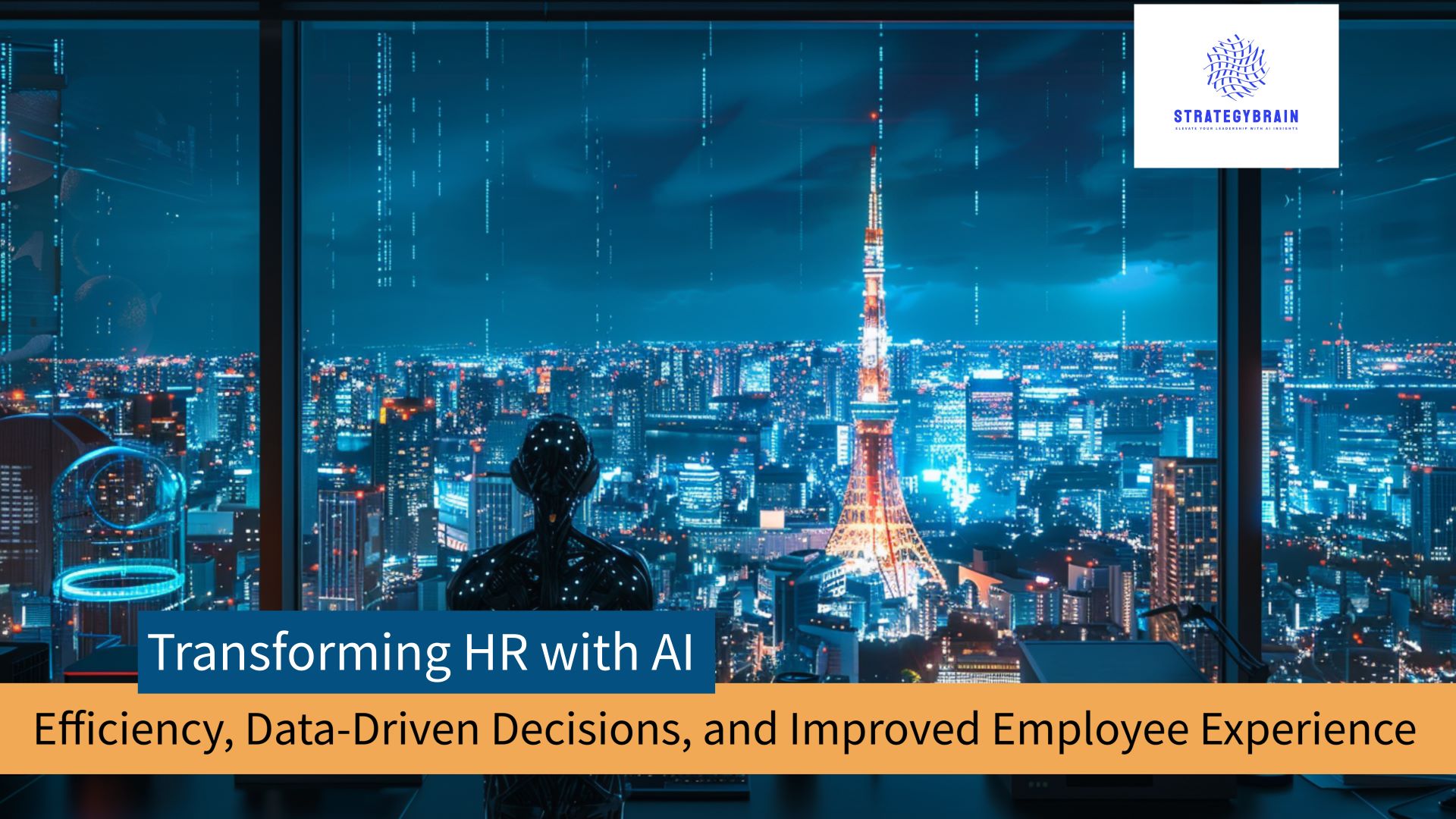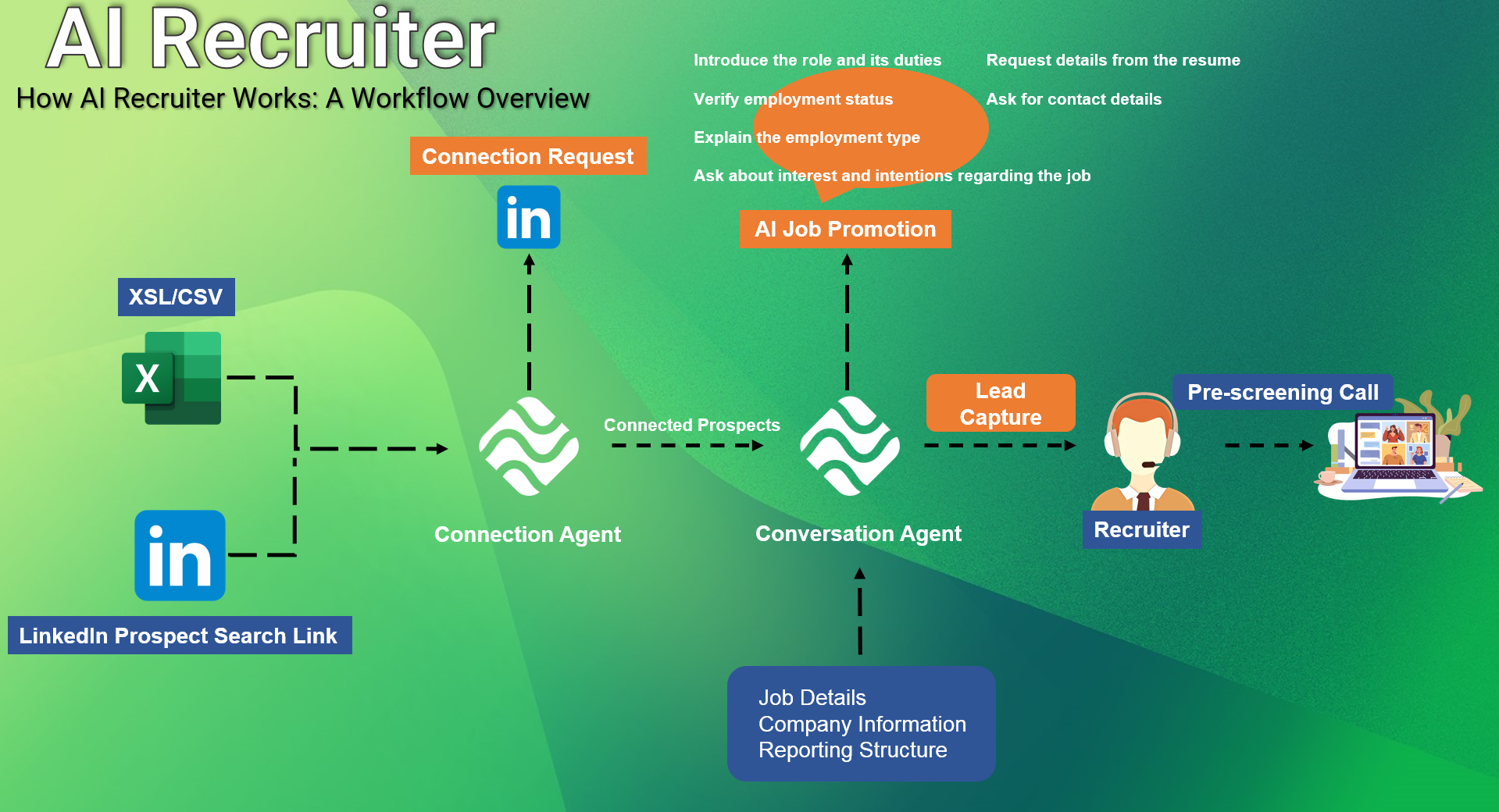In today’s dynamic business environment, the integration of AI into HR functions has ushered in a new era of efficiency and effectiveness. The symbiotic relationship between AI and human collaboration is transforming how organizations manage their HR processes, making operations more streamlined and decision-making more data-driven. This fusion leverages the strengths of both AI and human intuition, creating an HR ecosystem that is not only efficient but also empathetic.
The AI-Human Relationship in HR
Every HR professional has experienced the departure of a colleague and the subsequent struggle to fill the gap left behind. Traditionally, this meant more workload and longer hours. Imagine instead, your organization introduces AI-driven solutions to handle the vacated responsibilities. This shift might initially be met with skepticism and questions like:
- “How will AI know how to do my former co-worker’s job?”
- “What will happen to our ongoing projects?”
These concerns are natural but highlight the need for a better understanding of the AI-human collaborative potential in HR.
AI’s Role in HR Transformation
AI integration in HR is becoming more commonplace, revolutionizing various aspects of workplace dynamics. Its ability to streamline administrative tasks, enhance decision-making processes, and provide actionable insights from vast datasets is invaluable. For instance, one of your former co-worker’s tasks was answering queries about employee benefits. AI chatbots can now provide instant responses and detailed information on HR-related queries, reducing administrative burdens and enhancing the employee experience.
Benefits of AI in HR
- Efficiency in Administrative Tasks:
- AI automates repetitive tasks such as data entry, scheduling, and compliance management, freeing up HR professionals to focus on strategic initiatives.
- Platforms like StrategyBrain leverage advanced algorithms to ensure that routine HR tasks are handled with precision and speed.
- Enhanced Decision-Making:
- AI tools provide data-driven insights, enabling HR managers to make informed decisions. Predictive analytics help in identifying trends and potential issues before they escalate.
- For example, AI can analyze employee performance data to predict future leaders within the organization.
- Improved Employee Experience:
- AI-powered chatbots and virtual assistants offer 24/7 support, ensuring employees have access to necessary information anytime.
- These tools enhance the overall employee experience by providing quick and accurate responses to their queries.
Maintaining the Human Touch in AI Integration
While AI excels in executing repetitive tasks, it cannot replicate the nuanced understanding, empathy, and creativity inherent in human interactions. HR professionals bring a unique value to the table through their ability to handle complex interpersonal dynamics, resolve conflicts, and develop leadership potential.
Ensuring Ethical and Strategic Use of AI
- Balancing Technology and Human Intuition:
- HR professionals must ensure that AI complements rather than replaces human expertise. This balance is crucial in maintaining the human touch in HR functions.
- For example, while AI can screen resumes efficiently, final hiring decisions should involve human judgment to consider cultural fit and potential.
- Ethical Considerations:
- The ethical use of AI in HR requires transparency and fairness. It’s essential to ensure that AI algorithms do not perpetuate biases.
- Regular audits and updates of AI systems can help in maintaining ethical standards.
- Continuous Adaptation and Learning:
- HR professionals need to stay updated with the latest AI developments and continuously adapt to new tools and technologies.
- Training programs and workshops can help HR teams become proficient in using AI tools effectively.
AI in Recruitment: Insights and Best Practices
Streamlining Recruitment Processes
AI significantly enhances recruitment processes by automating tasks such as resume screening and interview scheduling. This allows HR professionals to focus on more strategic aspects of recruitment, such as candidate engagement and relationship building.
- Advanced Sourcing:
- AI tools like StrategyBrain’s recruitment software use advanced algorithms to source candidates from diverse backgrounds, ensuring a more inclusive talent pool.
- These tools can analyze large volumes of data to identify the best candidates based on skills, experience, and cultural fit.
- Integration with Existing HR Systems:
- Seamless integration of AI tools with existing HR systems ensures a smooth workflow and better data management.
- This integration helps in maintaining consistency and accuracy across all HR functions.
Enhancing Candidate Experience
AI can enhance the candidate experience by providing personalized interactions and timely updates. For instance, AI chatbots can engage with candidates throughout the recruitment process, answering their queries and providing feedback.
- Personalized Engagement:
- AI tools can tailor communication based on the candidate’s profile and preferences, making the recruitment process more engaging.
- Personalized emails and updates keep candidates informed about their application status, reducing anxiety and enhancing their overall experience.
- Efficient Screening:
- AI-powered screening tools can quickly identify the most suitable candidates, reducing the time-to-hire and improving the quality of hires.
- These tools use natural language processing (NLP) to analyze resumes and match candidates to job requirements accurately.
Q&A for HR Beginners
Q1. What is AI in HR?
AI in HR refers to the use of artificial intelligence technologies to automate and enhance various HR functions such as recruitment, employee engagement, and data analysis.
Q2. How does AI improve the recruitment process?
AI streamlines recruitment by automating tasks like resume screening and interview scheduling, allowing HR professionals to focus on strategic tasks such as candidate engagement.
Q3. Can AI replace HR professionals?
No, while AI can handle repetitive tasks efficiently, it cannot replicate human empathy, intuition, and creativity. HR professionals bring a unique value in handling interpersonal dynamics and developing leadership potential.
Q4. What are the ethical considerations in using AI in HR?
Ethical considerations include ensuring transparency, fairness, and the prevention of biases in AI algorithms. Regular audits and updates are essential to maintain ethical standards.
Q5. How can HR professionals stay updated with AI developments?
HR professionals can stay updated by participating in training programs, workshops, and industry events focused on AI and HR technologies.
Conclusion
AI and human collaboration in HR functions offer a powerful combination of efficiency and empathy. By strategically integrating AI into HR processes, organizations can achieve significant improvements in efficiency, decision-making, and employee experience. However, it is crucial to maintain the human touch and ensure ethical use of AI to fully realize its potential. StrategyBrain, with its innovative AI recruitment solutions, is at the forefront of this transformation, helping organizations leverage AI to create a more effective and human-centric HR function.
Get Started with StrategyBrain’s AI Recruitment Software Today!

